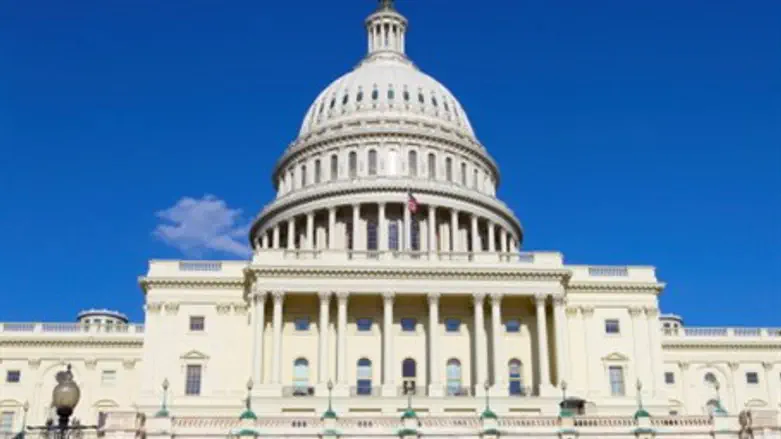
Congress has submitted a new measure urging the US to increase investment in Israeli security technologies and other sectors so as to counter the BDS movement that seeks to stir up an international boycott against the Jewish state.
A copy of the measure was obtained by the Washington Free Beacon, which reported on the new move on Monday. It comes in parallel to another resolution working to get US states to divest taxpayer funds from anti-Israel companies.
Congress insiders were cited by the paper saying the new measures are getting bipartisan support, and that they intend to rebuff US President Barack Obama's administration and anti-Israel groups by clarifying that the US remains committed to its economic ties with Israel.
The resolution will appear before the House Foreign Affairs Committee on Wednesday.
It calls on the Obama administration "to explore new agreements with Israel, including in the fields of energy, water, agriculture, medicine, neurotechnology and cybersecurity."
It likewise urges the administration to "regularize and expand existing forums of economic dialogue with Israel and foster both public and private sector participation."
Representatives Ted Lieu (D-CA), Eliot Engel (D-NY), Ted Poe (R-TX) and Ed Royce (R-CA) are leading the resolution. Royce chairs the Congressional committee.
Sources told Washington Free Beacon that top pro-Israel groups such as the Israel Allies Foundation and AIPAC are backing the measure.
"This is a major statement from Congress,” said EJ Kimball, executive director of the Israel Allies Foundation. “It shows an understanding that the economic ties with Israel are critical, and that there is more America can do to upgrade these ties and bring even more benefits to the American economy."
Aaron Menenberg, Israel Allies Foundation's director of government affairs, told the paper that the lawmakers he worked with "wanted to find a way of boosting US ties with Israel and hammer BDS."
“We saw a particularly unstable Middle East, and Europe had started moving towards making economic troubles for Israel through its labeling notice," said Menenberg. "This is just the beginning of legislative moves to boost US-Israel ties because it’s an obvious win-win for both parties, and for both countries.”
Obama has long shown what many call a hostile stance towards Israel, which was recently on display last Thursday as the White House partially rejected a trade bill for being too pro-Israel. In the White House statement, it specified its rejection of only one part of the bill that calls to strengthen bilateral economic ties with Israel and fight BDS efforts to boycott the Jewish state.
Obama also in late January issued orders to importers to label all products from Judea and Samaria as not being from "Israel." Legal groups have argued the orders were not merely "reissued" as the White House claimed, but rather indicated a policy change instituted through deception, as the initial 1995 protocols only called to label Palestinian Authority goods as not being Israeli.